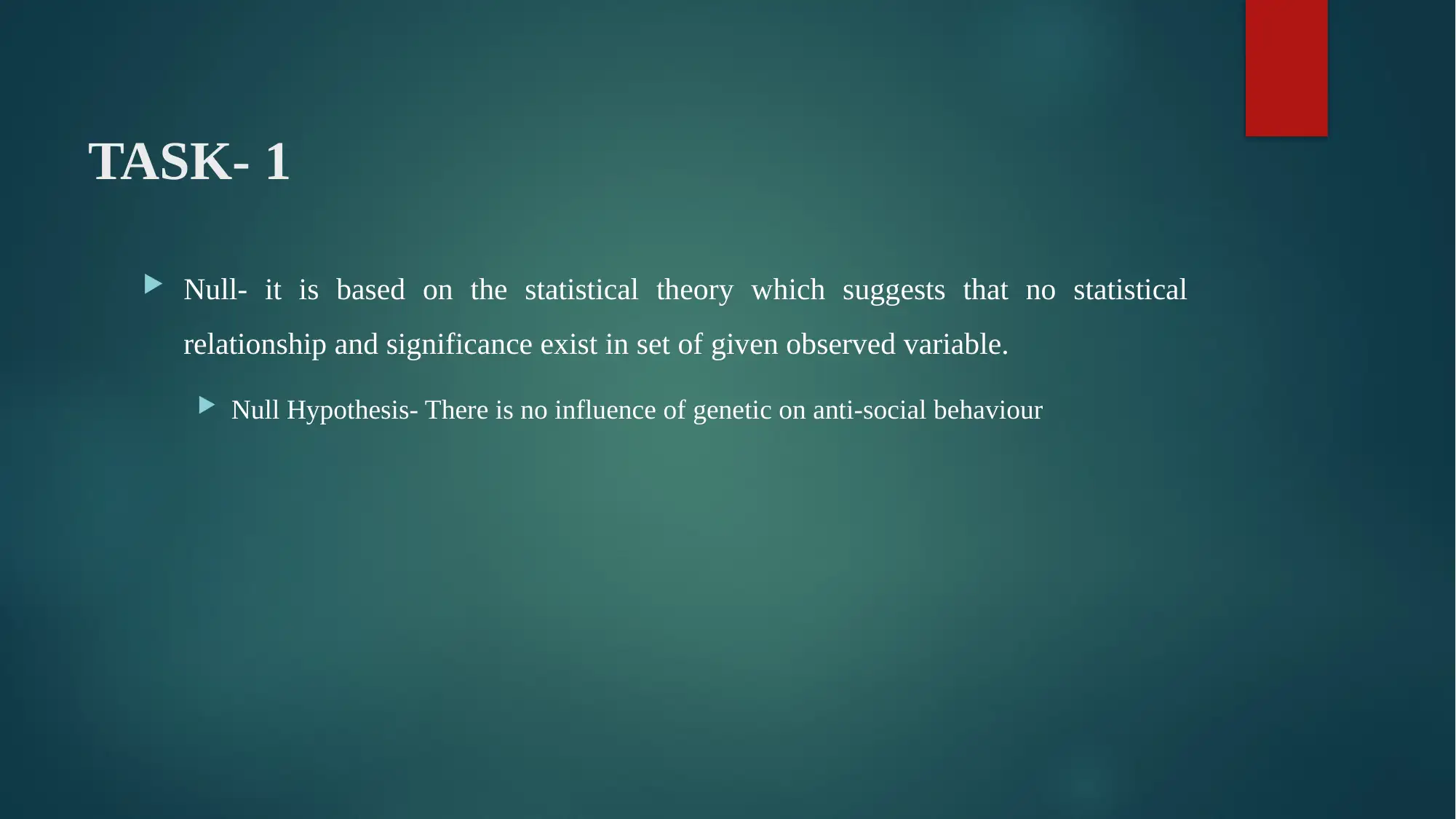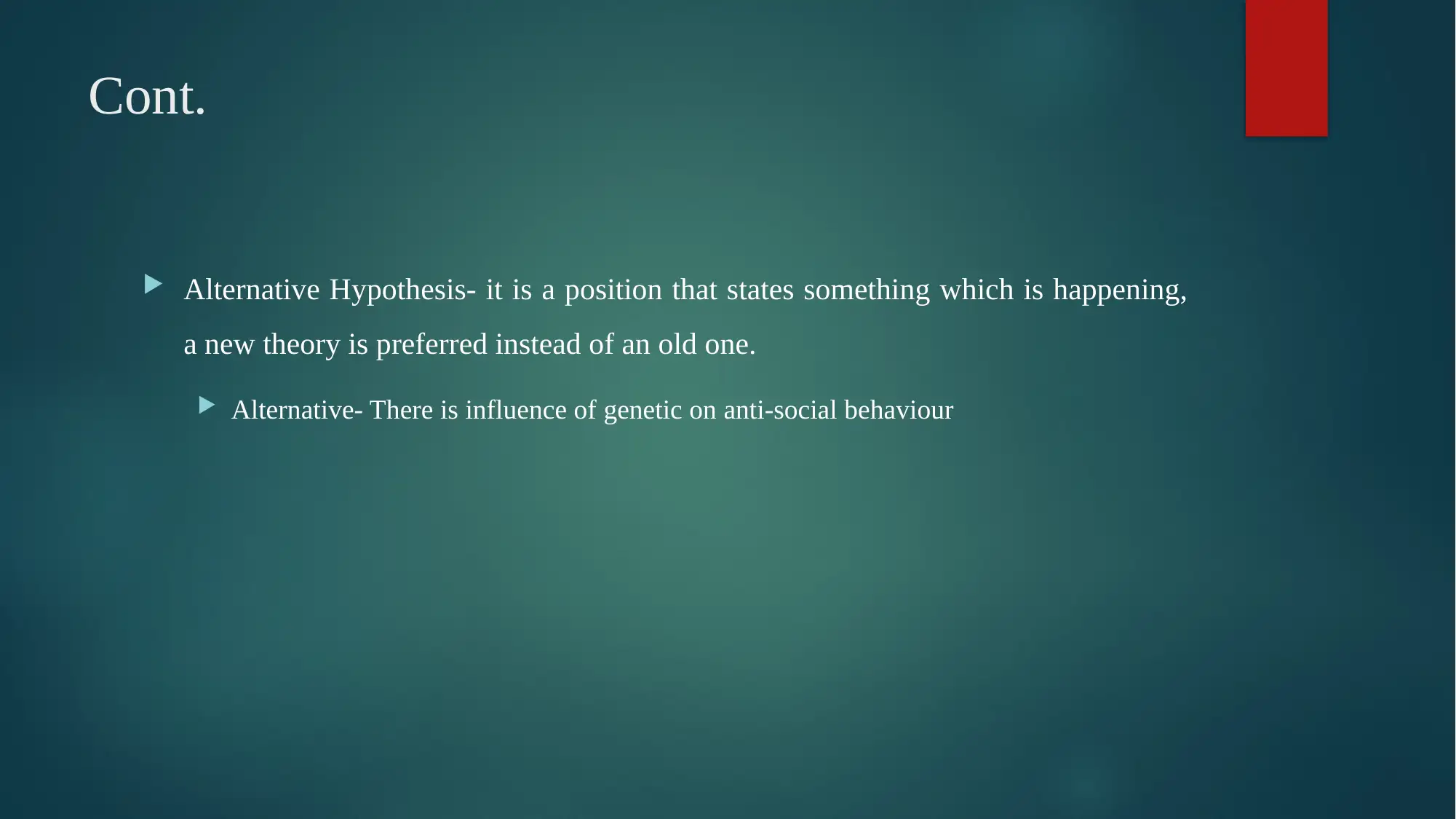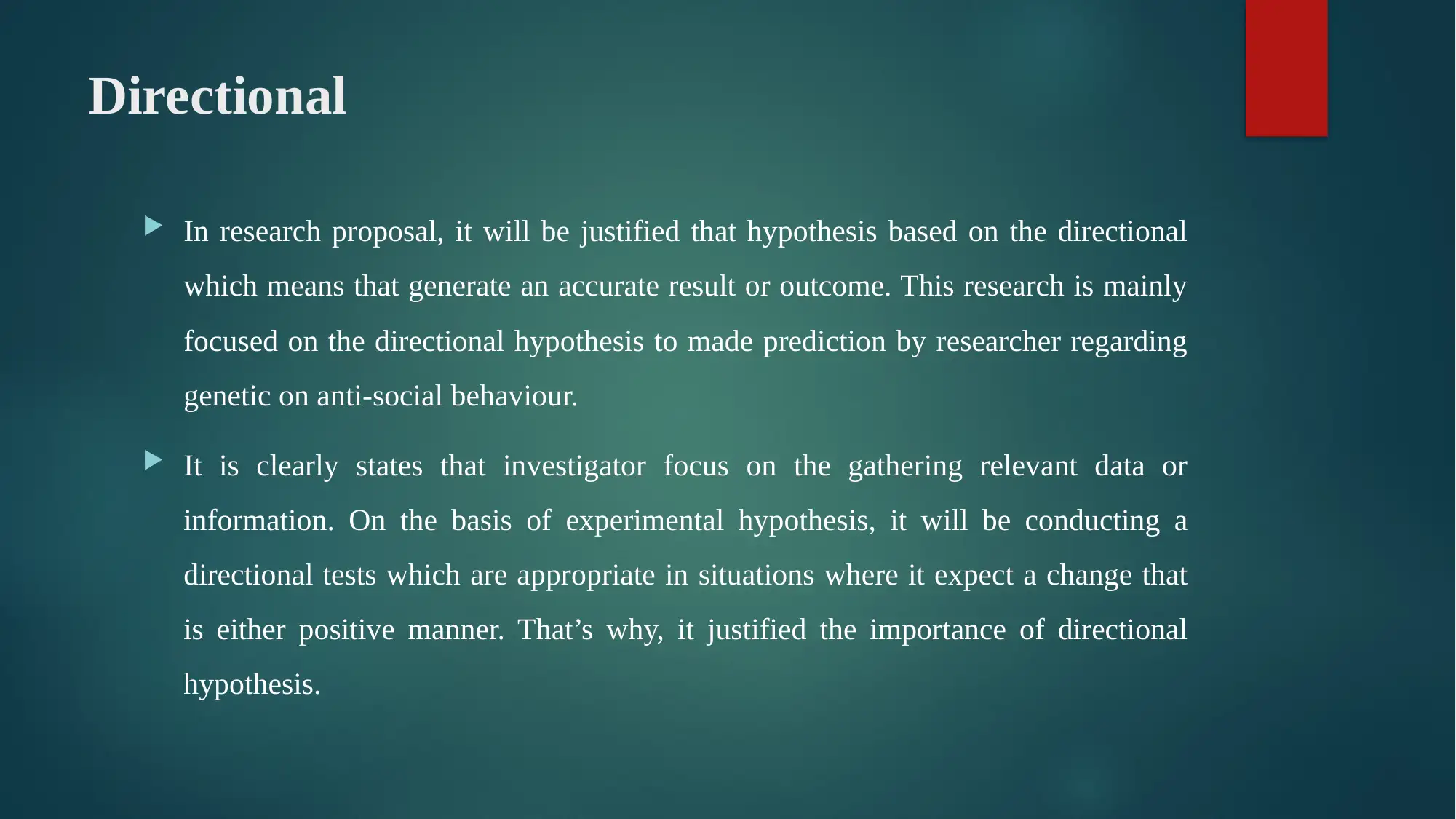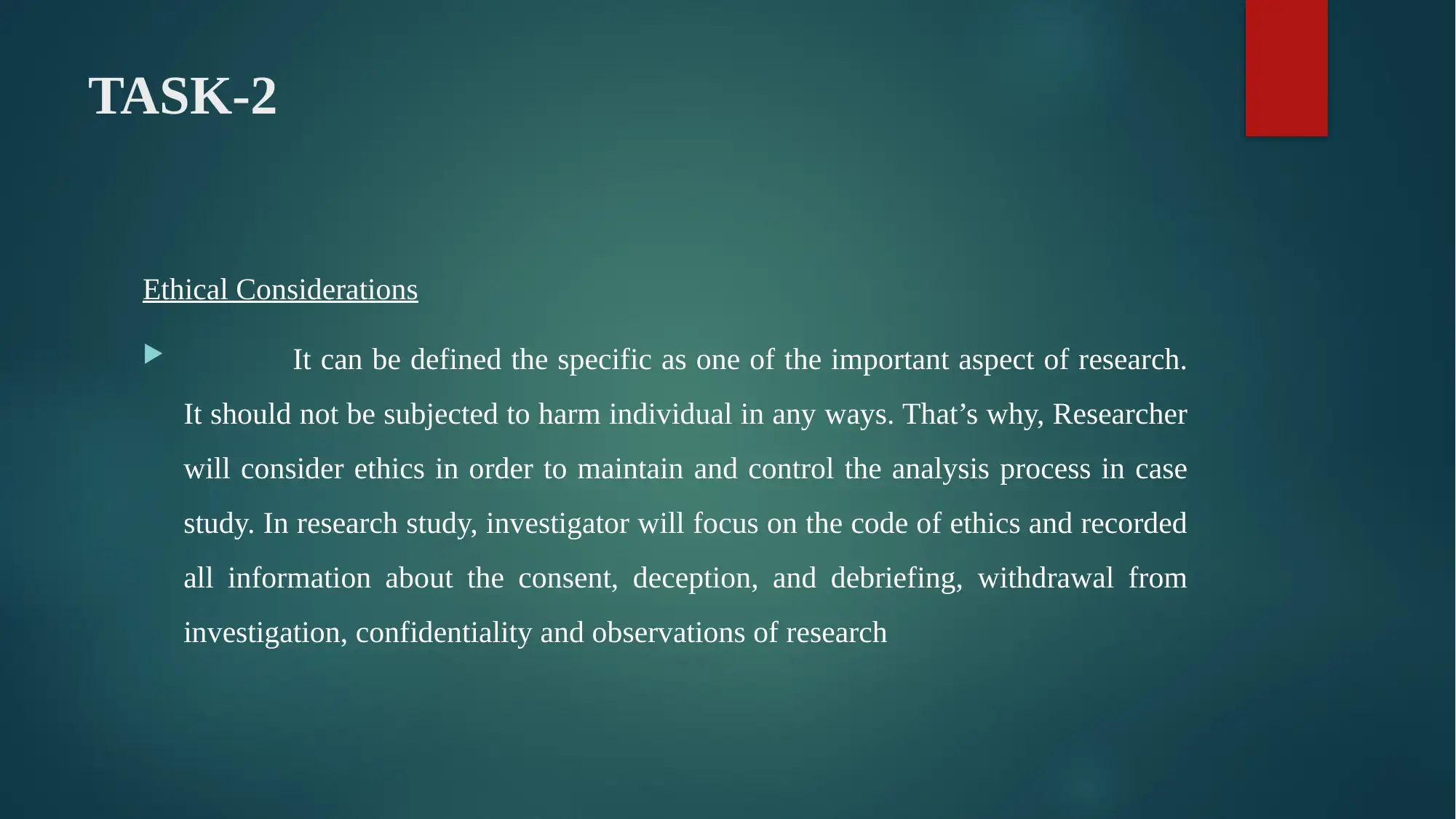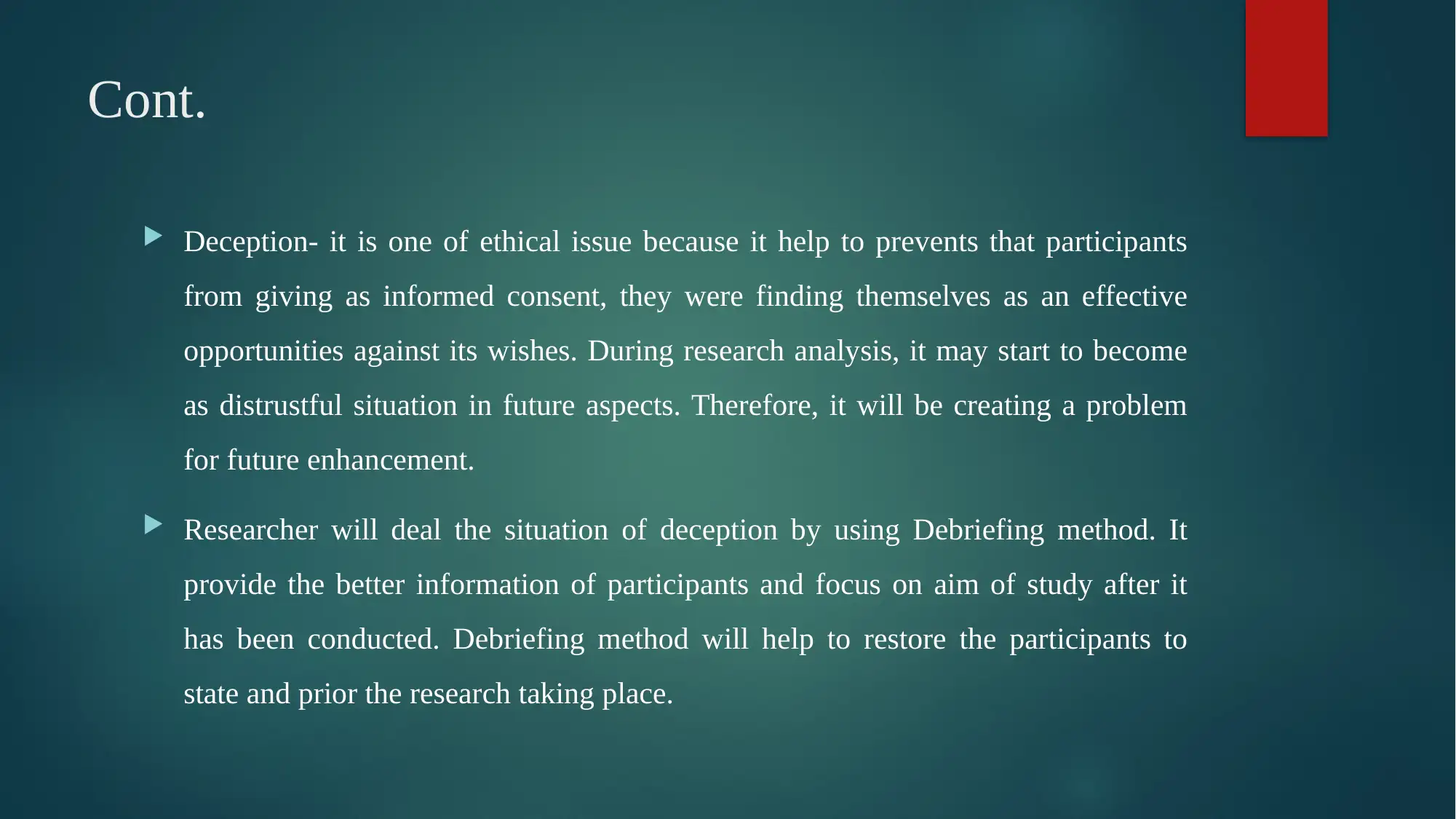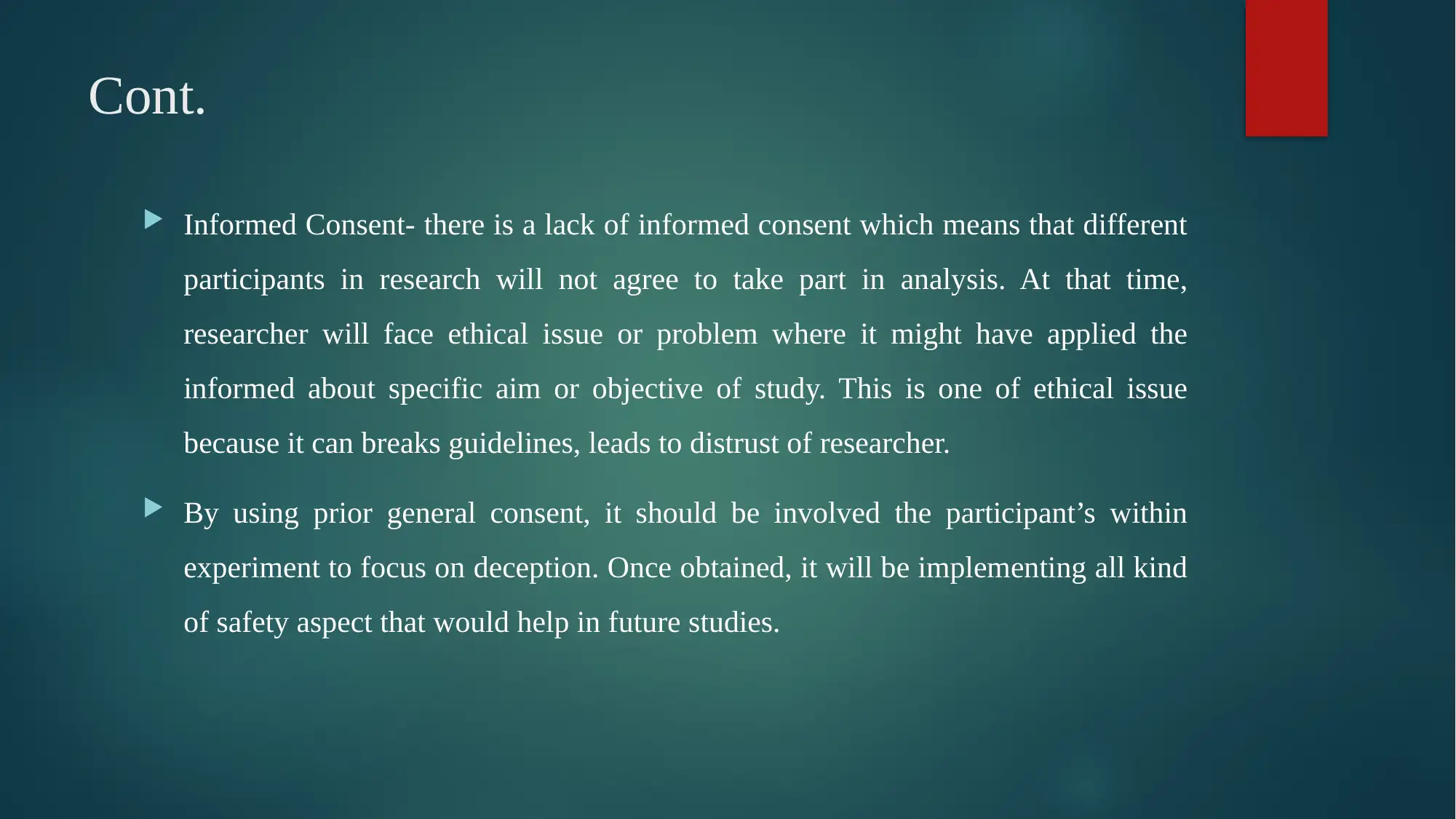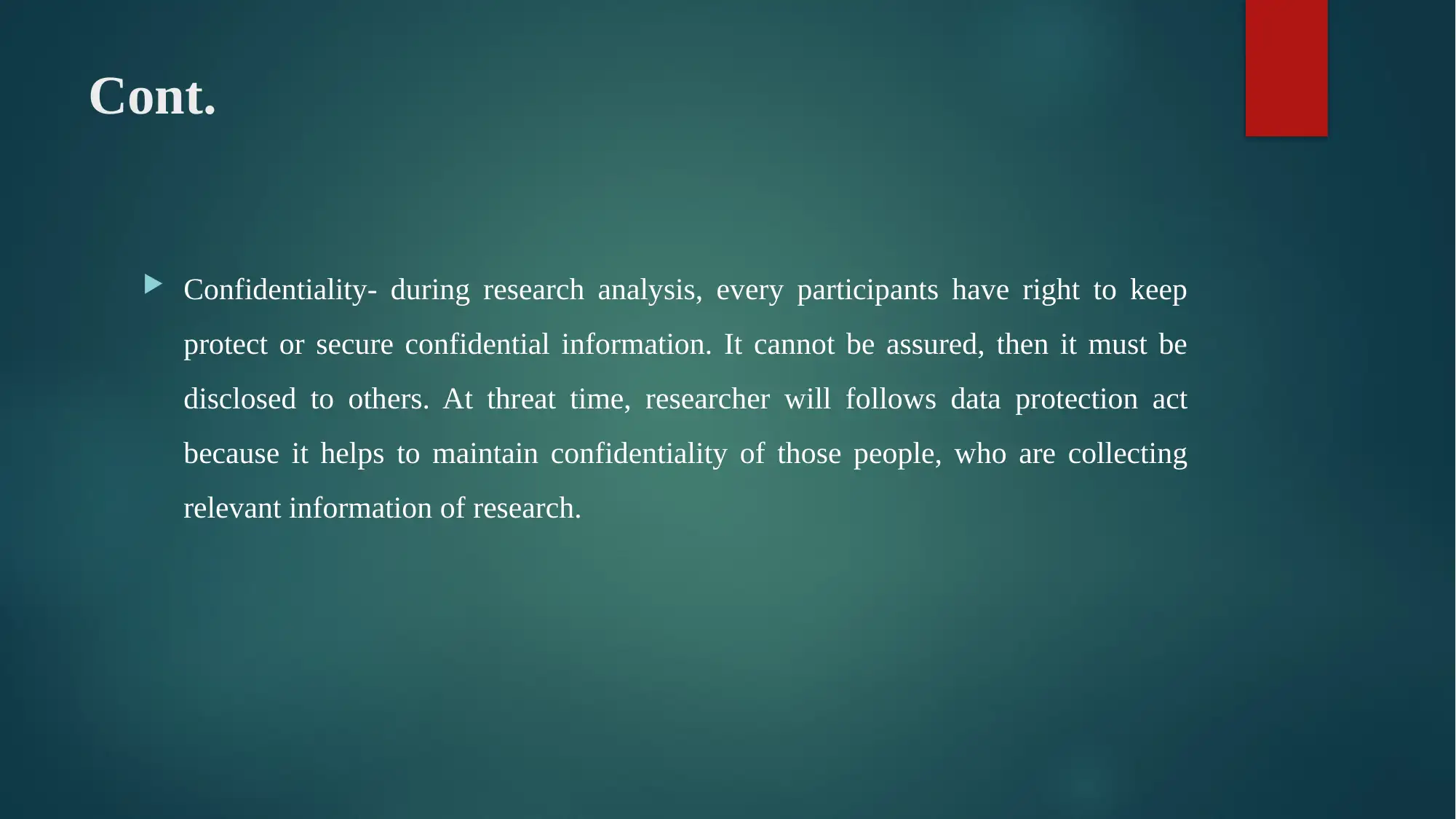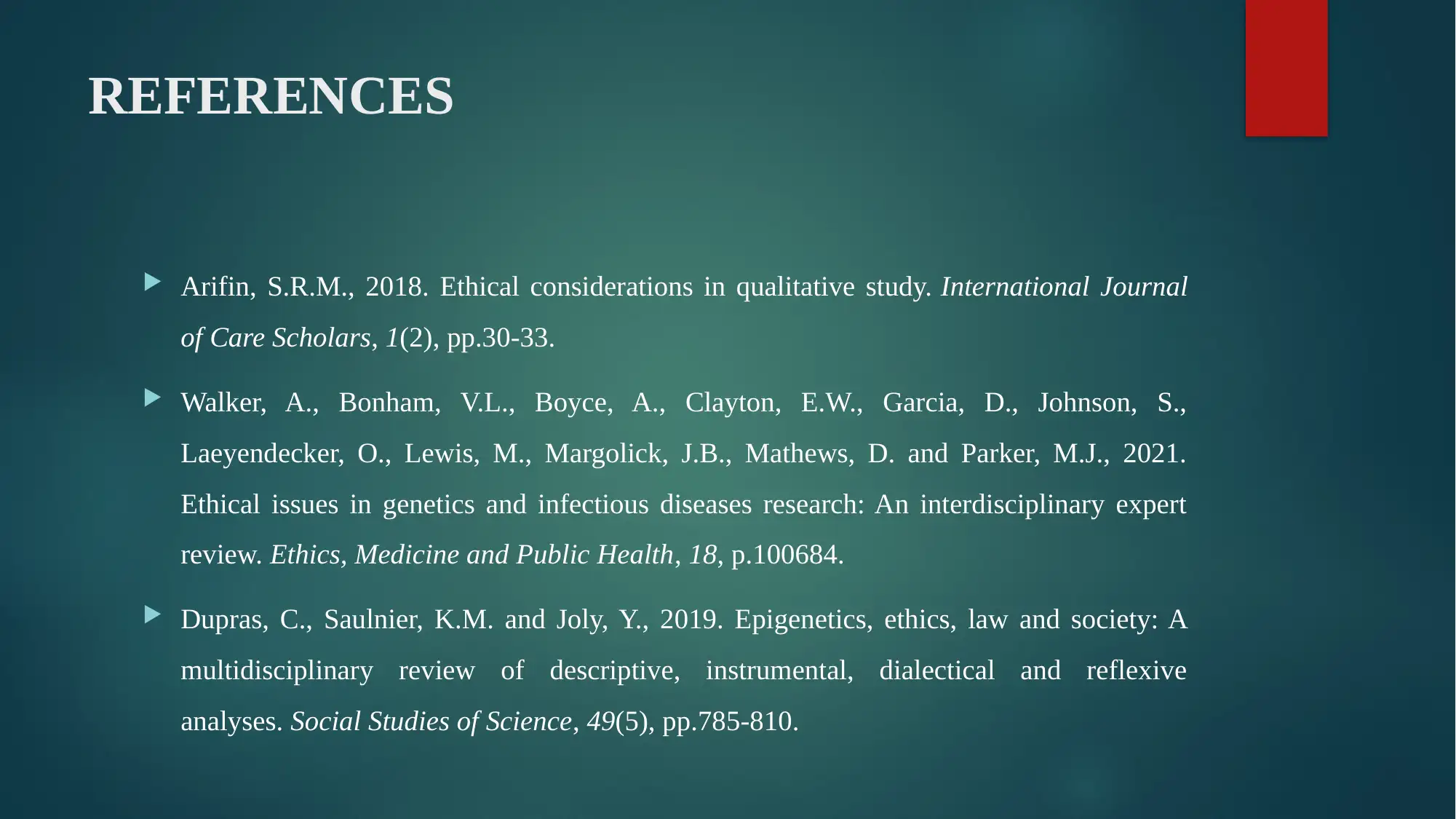Genetics and Antisocial Behavior: A Research Proposal
VerifiedAdded on 2023/06/18
|10
|709
|67
AI Summary
This research proposal aims to investigate the influence of genetics on antisocial behavior. The directional hypothesis will be used to generate accurate results. Ethical considerations such as informed consent, deception, and confidentiality will be taken into account. References from various studies are also included.
Contribute Materials
Your contribution can guide someone’s learning journey. Share your
documents today.
1 out of 10
![[object Object]](/_next/static/media/star-bottom.7253800d.svg)

